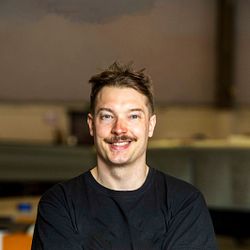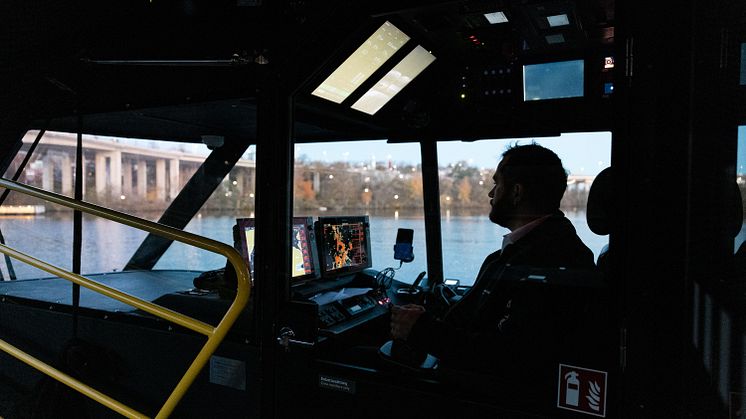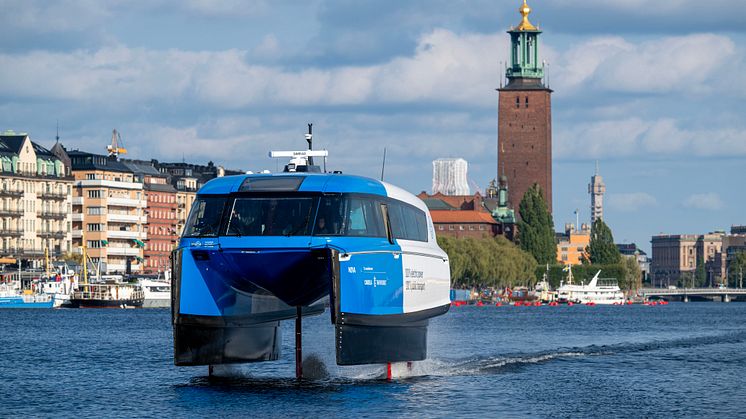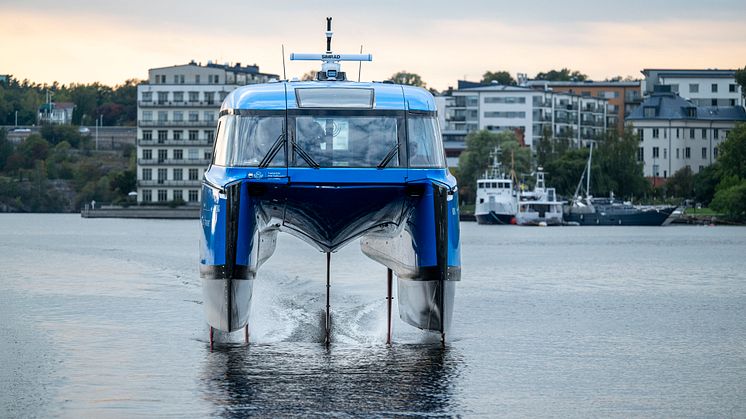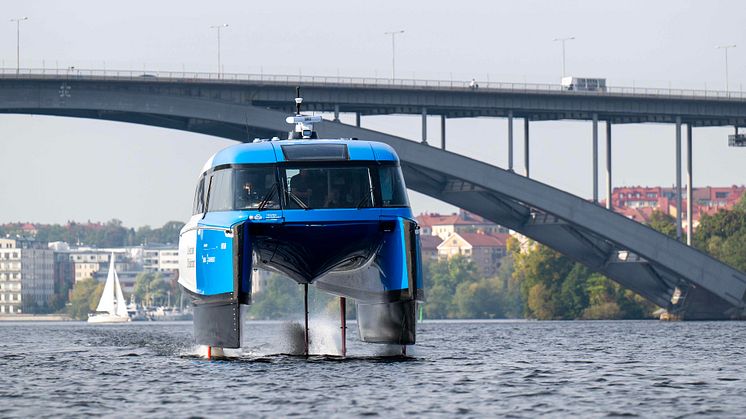
Press release -
The World’s First Flying Electric Ferry Is a Success – Stockholm Expands Service
The world’s first electric hydrofoil ferry is set to return to the waters of Stockholm after a short winter break. New data from autumn operations shows that Nova has been a success—both with passengers and for the climate.
Candela P-12 is the world’s first passenger ferry that combines electric propulsion with hydrofoil technology, allowing it to literally fly above the water surface – with lower energy consumption and higher speeds. The first unit, named Nova, has operated in Stockholm’s public transport system during the autumn.
As the service resumes on April 15 after the ice season, new statistics from Region Stockholm confirm that the vessel is a major success – both for passengers and the environment.
Nova emits 95% less CO₂ compared to the conventional diesel-powered vessels Lux and Sunnan, which operate the same route, and use 84% less energy per passenger-kilometre.
At the same time, statistics show that Nova is extremely popular; most departures have been fully booked – often with long queues. The popularity stems from Nova reducing travel time between Tappström (Ekerö center) and Stockholm City Hall to 30 minutes, compared to about an hour by car or bus.
The data also shows that Nova attracts more people to travel on water, with a 30% increase in ridership on route 89.
“Nova is drawing commuters to the other vessels as well. That’s especially exciting, since one of our goals is to show that with fast, comfortable waterborne transport, we can get car commuters to switch to waterborne transport,” says Gustav Hasselskog, CEO and founder of Candela.
Region Stockholm, which operates the service, will now increase Nova’s service from five days a week to daily operations by May.
The Candela P-12 with a cruising speed of 25 knots, is the fastest electric ship in the world. It is also faster than Stockholm’s fastest diesel-powered archipelago ferries. Thanks to its speed and low wake signature, the vessel is well-suited to both urban areas, where speed restrictions are typically in place due to conventional ferries causing damaging wake, and sensitive ecosystems.
“Demonstrating that the technology is mature and fit for demanding public transport use is important. This is the third generation of our foiling technology, and with lessons learned from producing over 100 leisure vessels, we’re scaling up production to meet demand,” says Gustav Hasselskog, CEO and Founder of Candela.
Candela already has P-12 customers around the world – from Saudi Arabia to New Zealand and the USA.
“We are incredibly happy that Region Stockholm has enabled us to demonstrate the hydrofoil technology in the city's public transport. We see that waterways in most cities have enormous potential for fast, low-cost, and emission-free transport that can relieve road networks and connect communities. This is just the beginning," says Gustav Hasselskog.
Facts:
- Nova’s CO₂ emissions: 23 g/pkm; the average for other vessels on the route is 439 g/pkm.
- Nova’s energy consumption: 0.39 kWh/pkm; the average for other vessels on the route is 3.31 kWh/pkm.
- Fastest travel time with Nova direct between Tappström and Klara Mälarstrand: approx. 30 minutes (with speed exemption at 22 knots from Gröndalsbron to City Hall). Other boats on the line take 45–55 minutes.
- 120 departures completed
- 2,326 total passengers carried
- Occupancy: 80.83%, in reality higher due to onboard training personnel.
Images of the P-12 in Stockholm's archipelago:
https://media.candela.com/Latest-News/Candela-P-12-Wave-Handling-Nyn%C3%A4shamn
Images of Nova in traffic:
Related links
Topics
Stockholm-based Candela Technology AB is the world leader in hydrofoiling electric vessels. The company was founded in 2014 by engineer and business leader Gustav Hasselskog with the mission to accelerate the world's transition to fossil fuel-free lakes and oceans by developing electric vessels that outperform those powered by fossil fuels.
Candela's watercraft have wings (hydrofoils) that lift the hull above the water and reduce friction, using 80% less energy than conventional ships at high speed. This technology allows for long-range water travel solely on battery power, a first in the industry. Candela's hydrofoils also enable operators to transition to sustainable fleets by providing up to 50% lower operational costs.
At the heart of Candela's hydrofoil tech stack is the Flight controller, which automatically stabilizes the vessel during flight by regulating the foils, using sensors that gauge wave height and wind speed, among other factors. Even in rough weather, passengers experience 90% less g-forces than they would on a traditional boat. All Candela vessels are fully connected and receive over-the-air updates.
After five years of research and development, Candela began producing the world's first electric hydrofoil leisure boat in 2019, the Candela C-7 open "roadster of the seas". This was followed in 2022 by the high-volume market Candela C-8, which was delivered to the first customers in spring 2023. Over 150 C-8 units have been sold to date, and the vessel has been lauded as a "game changer" by Motorboat and Yachting magazine, winning numerous awards including the 2022 European Powerboat of the Year award for its superior seakeeping, long range, and high speed.
In 2024, Candela launched its first commercial vessel, the Candela P-12 Shuttle ferry. It's the fastest and longest-range electric ship ever built, with a top speed of 30 knots and a range of 40 nautical miles at 25 knots. It is also the most energy-efficient fast ship ever made in its size class. Substantial operational cost savings over diesel vessels are projected. The first unit entered service in Stockholm's public transport system during fall 2024. Customers, from Saudi Arabia's NEOM project to operators in the US, Asia Pacific and Europe, will take delivery starting in 2024/25.
Candela is a technology company with headquarters in Stockholm, Sweden, employing over 200 engineers, technicians, and production staff. The company develops the entire tech stack, from the C-POD motor to the control system and carbon fiber hulls, in-house. Candela's two wholly-owned factories in Stockholm, Sweden, produce the Candela C-8 and P-12 vessels. The company also has leisure boat resellers in 12 countries and wholly-owned sales offices in San Francisco, USA, and Cannes, France.

